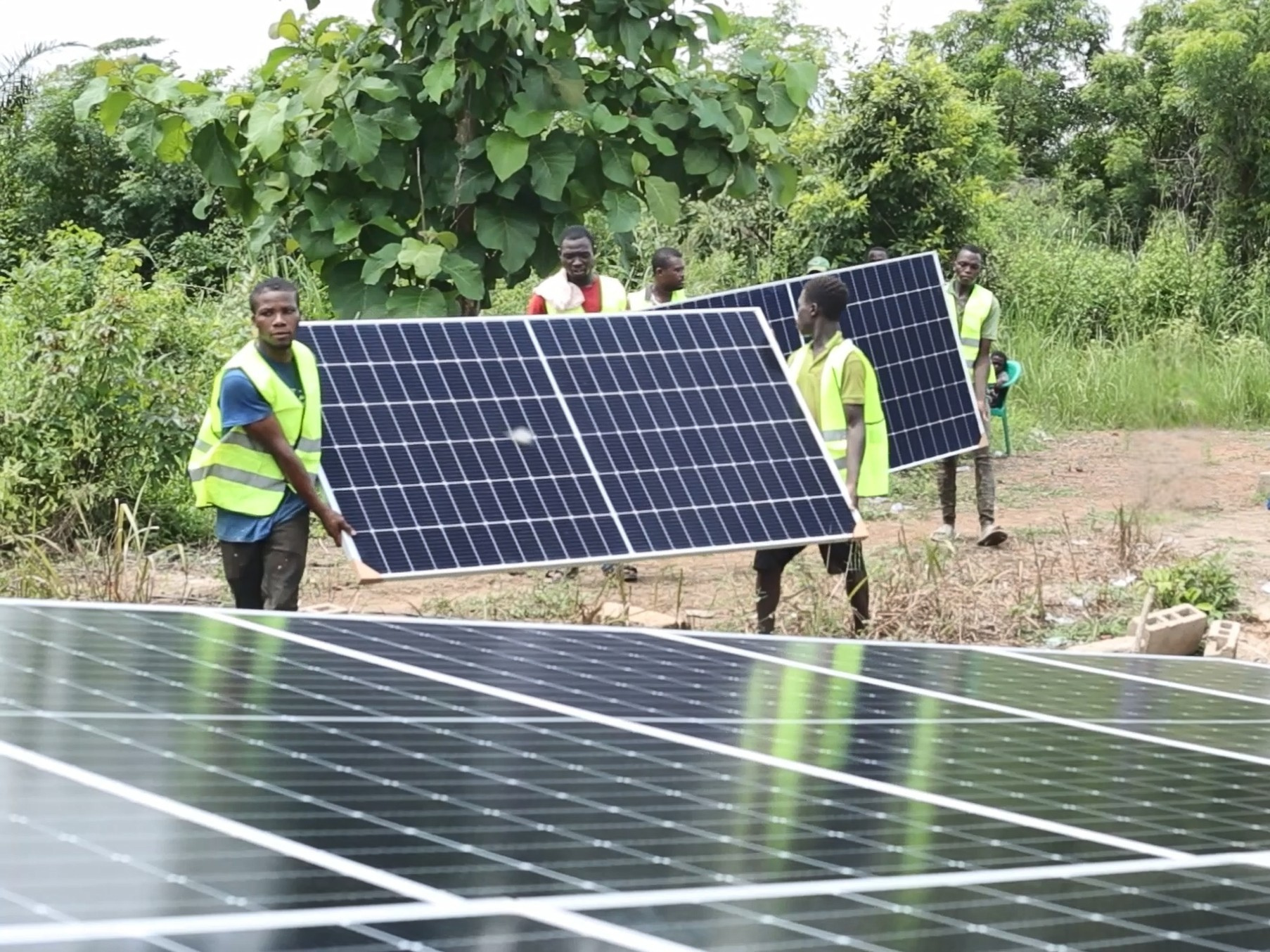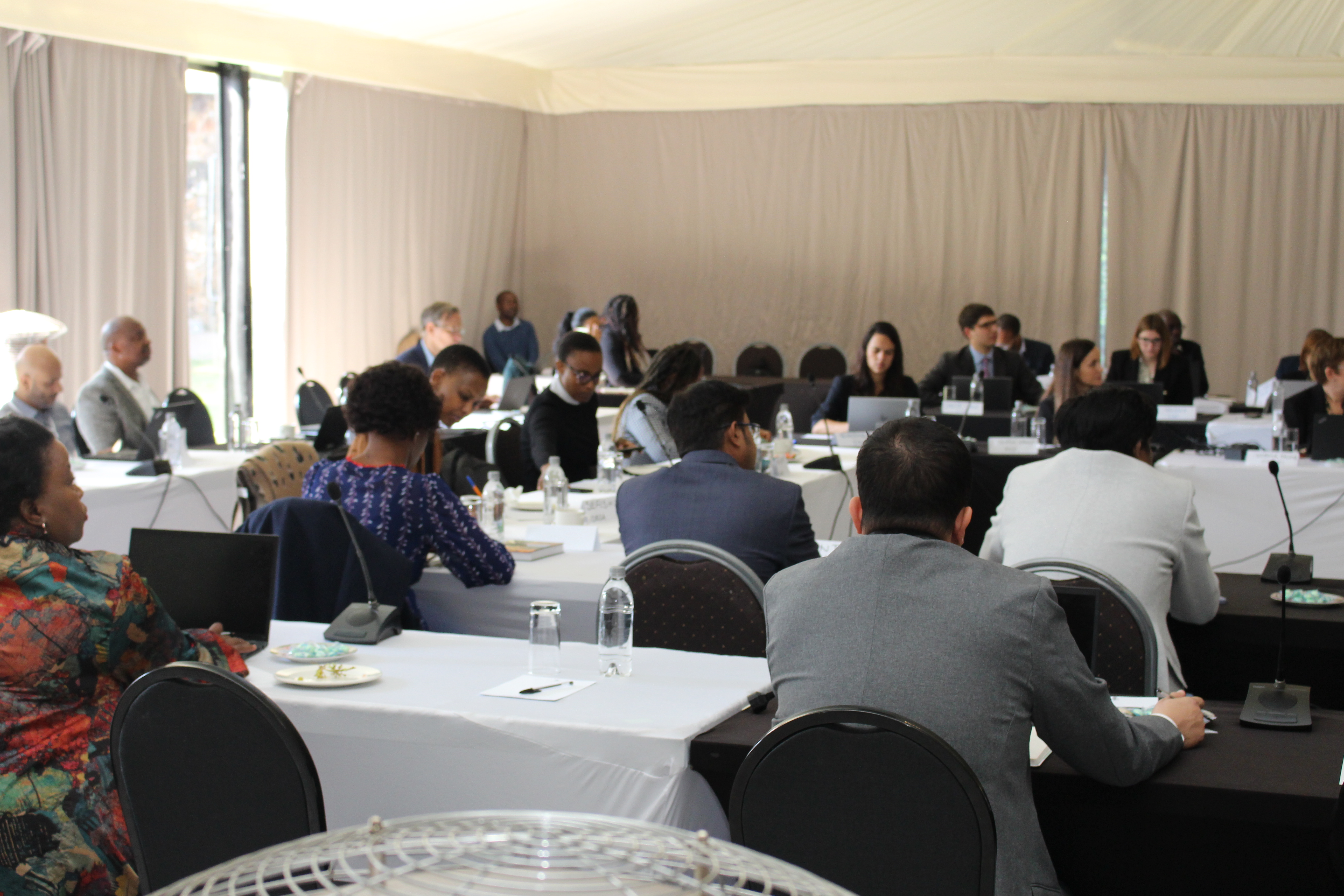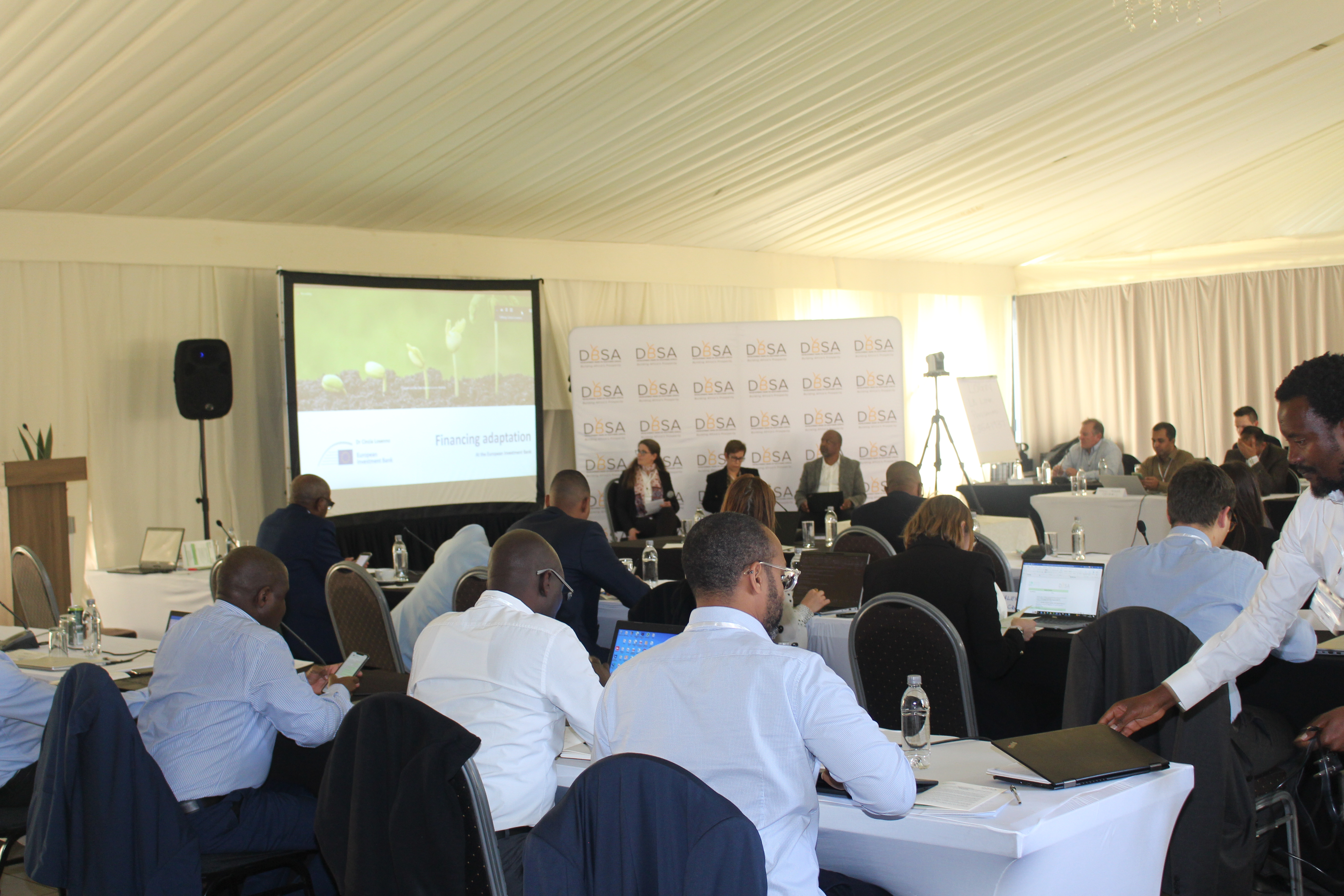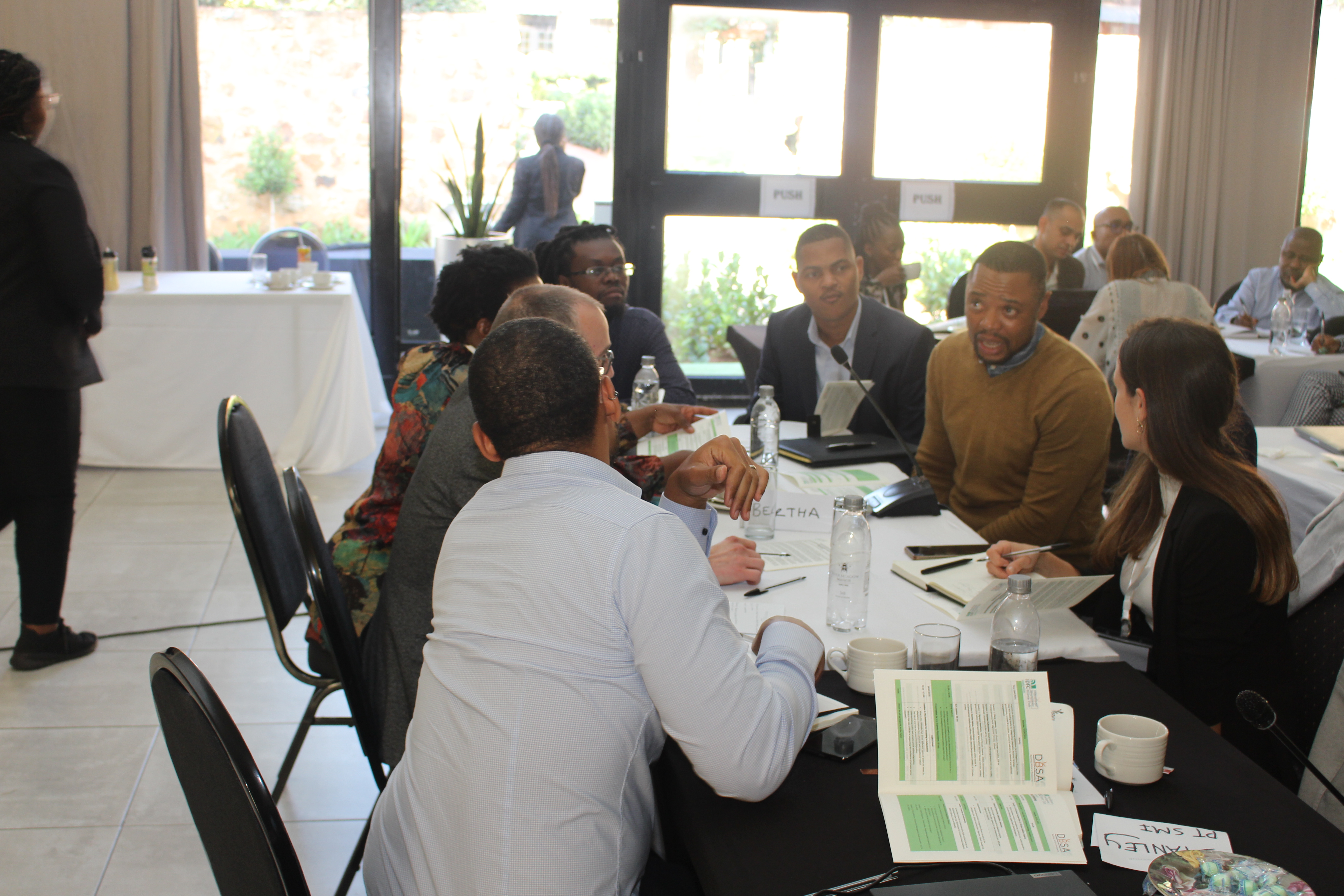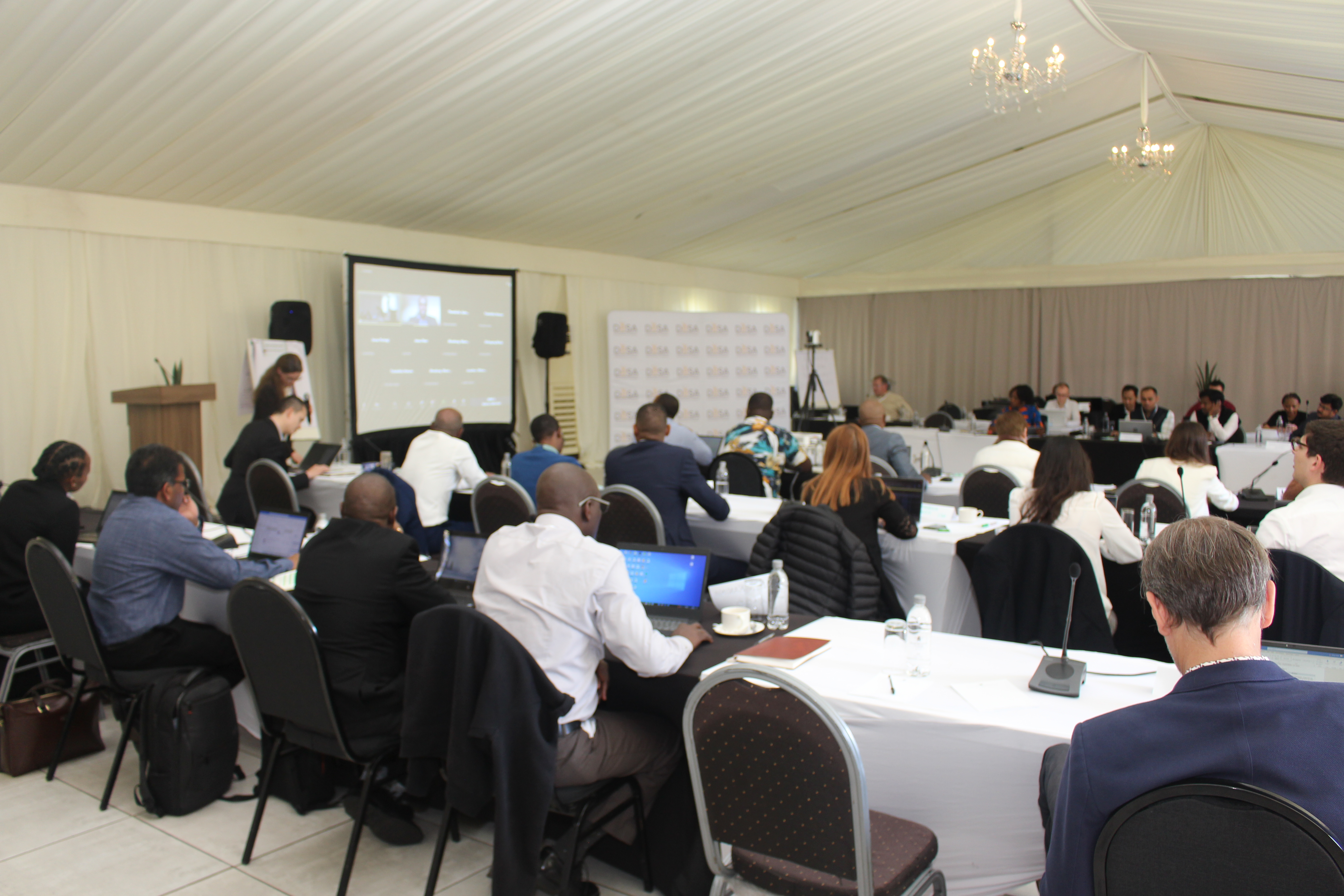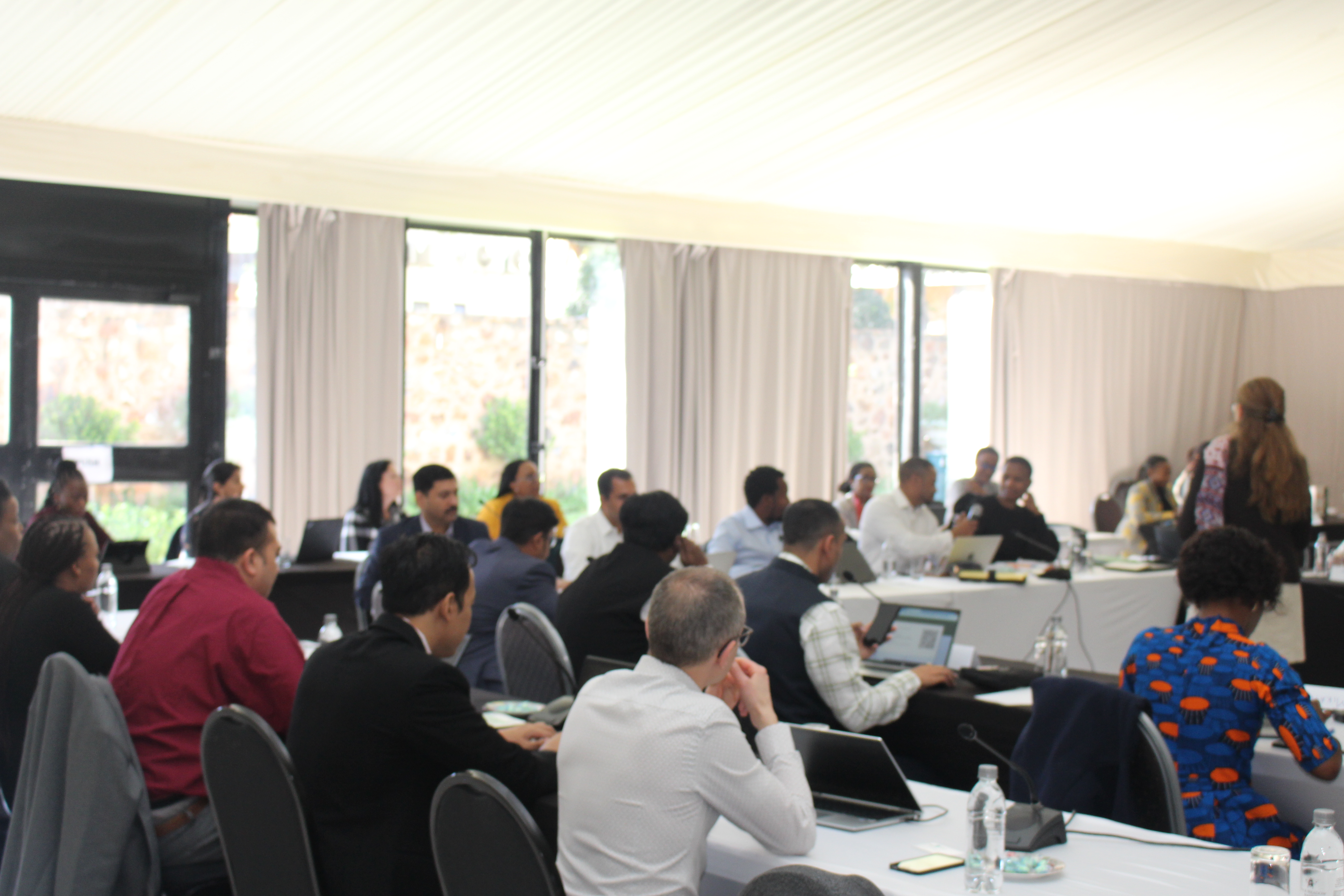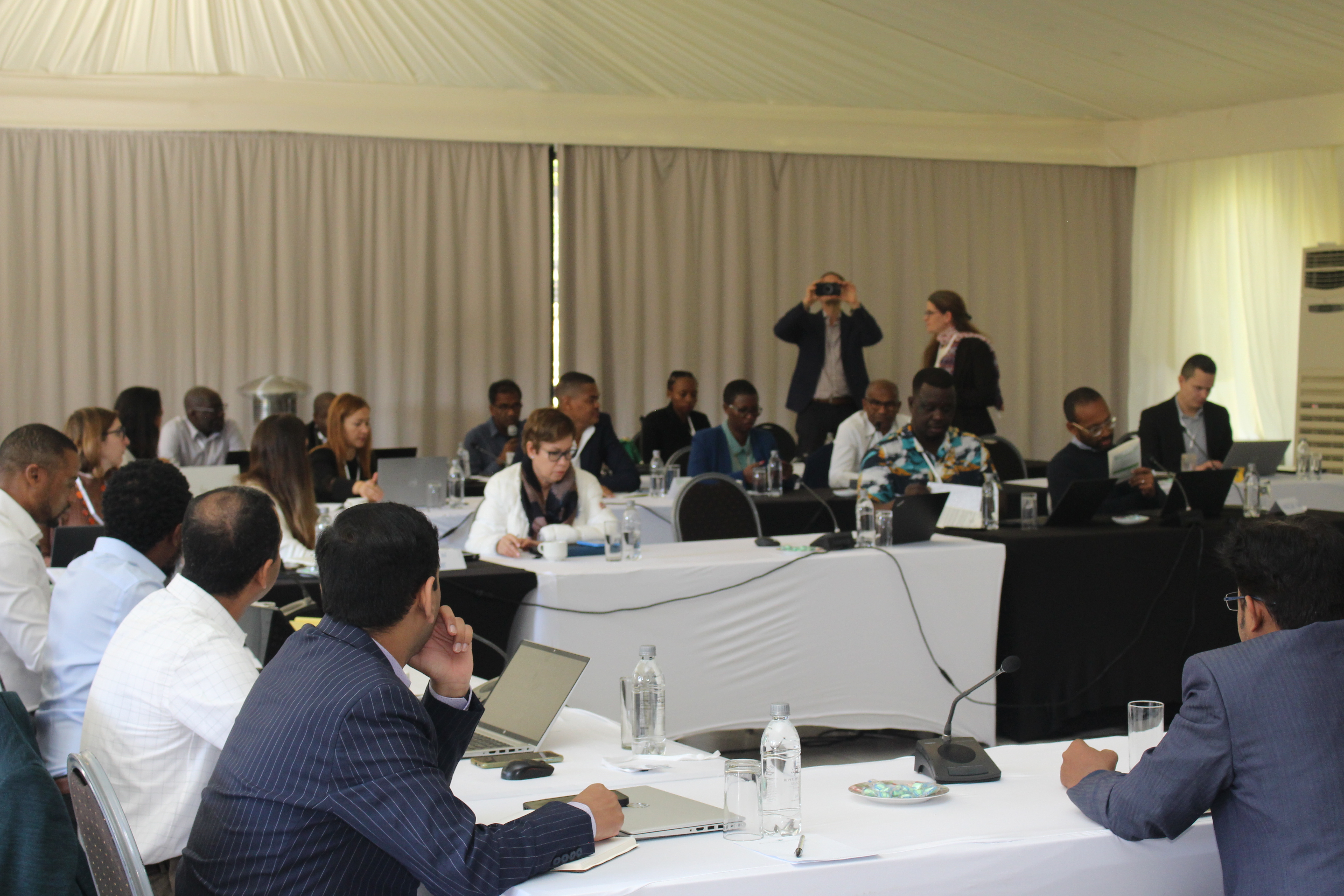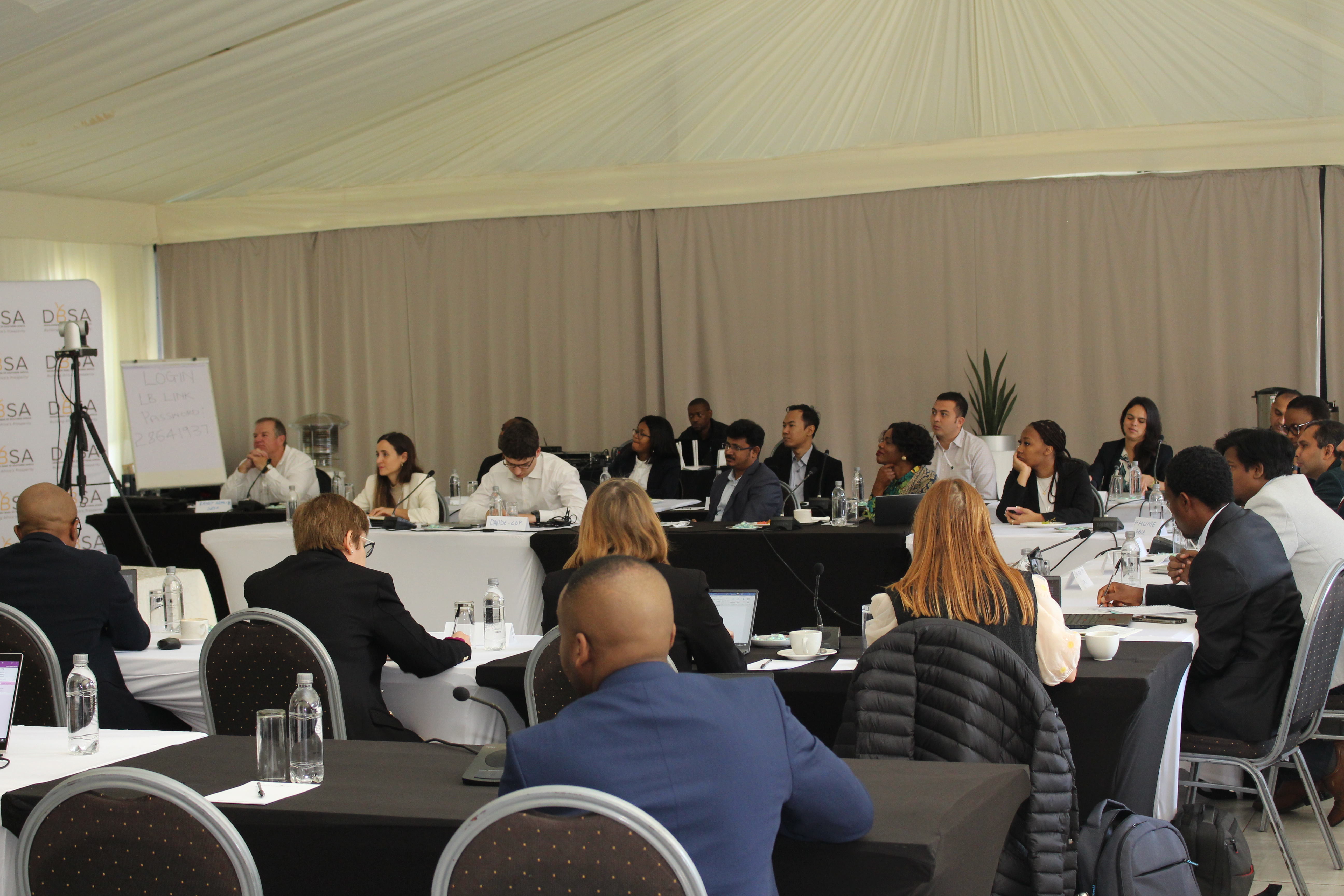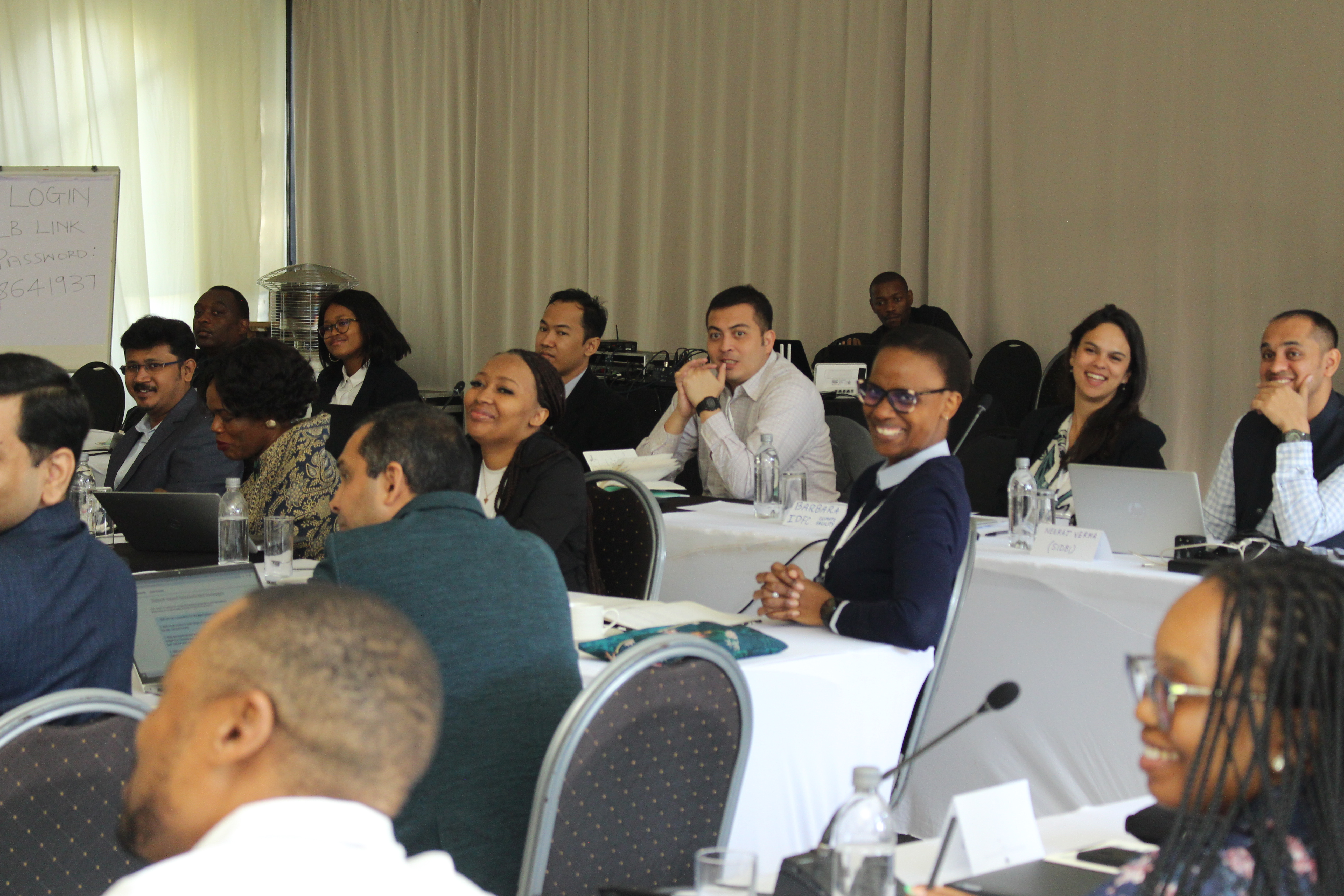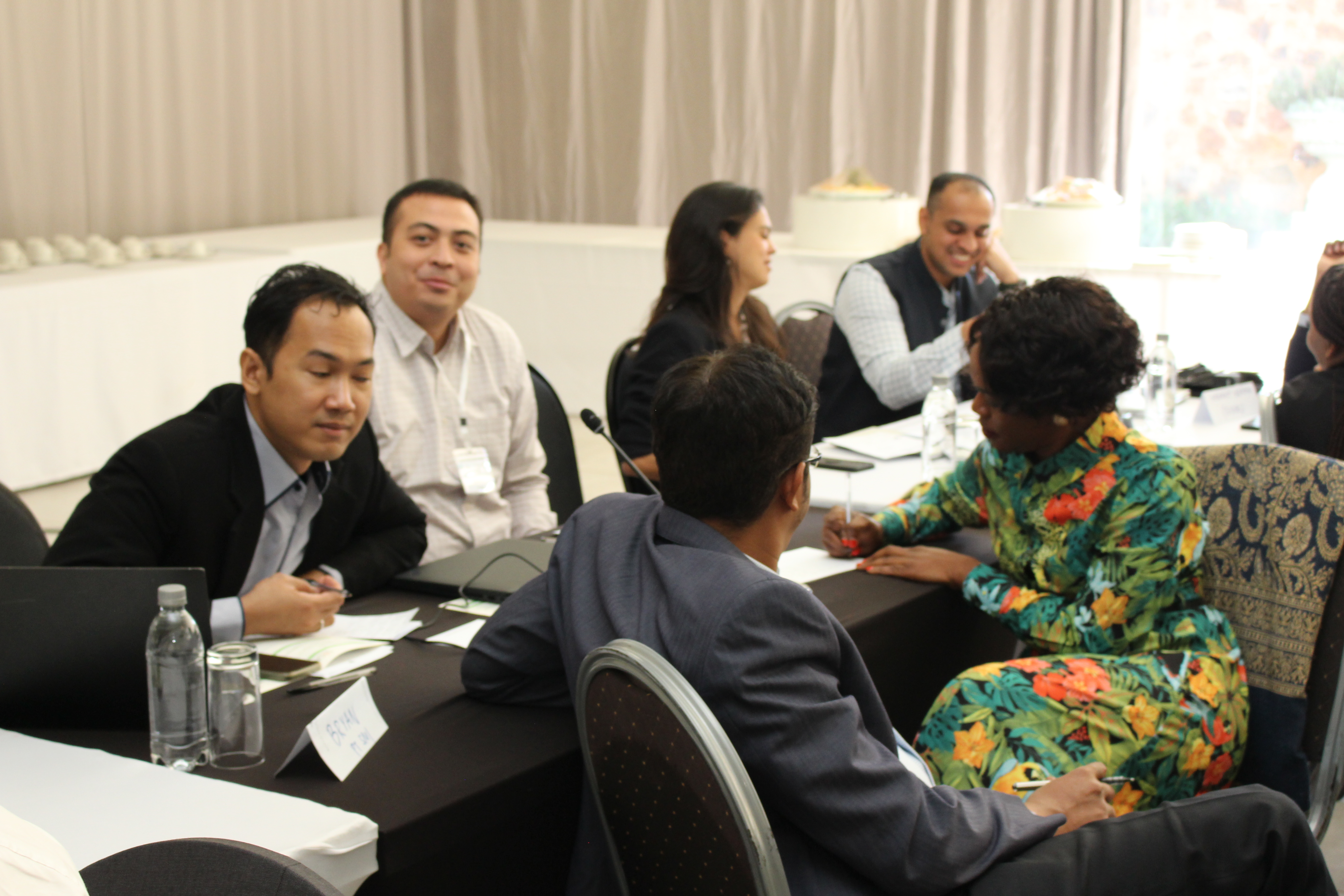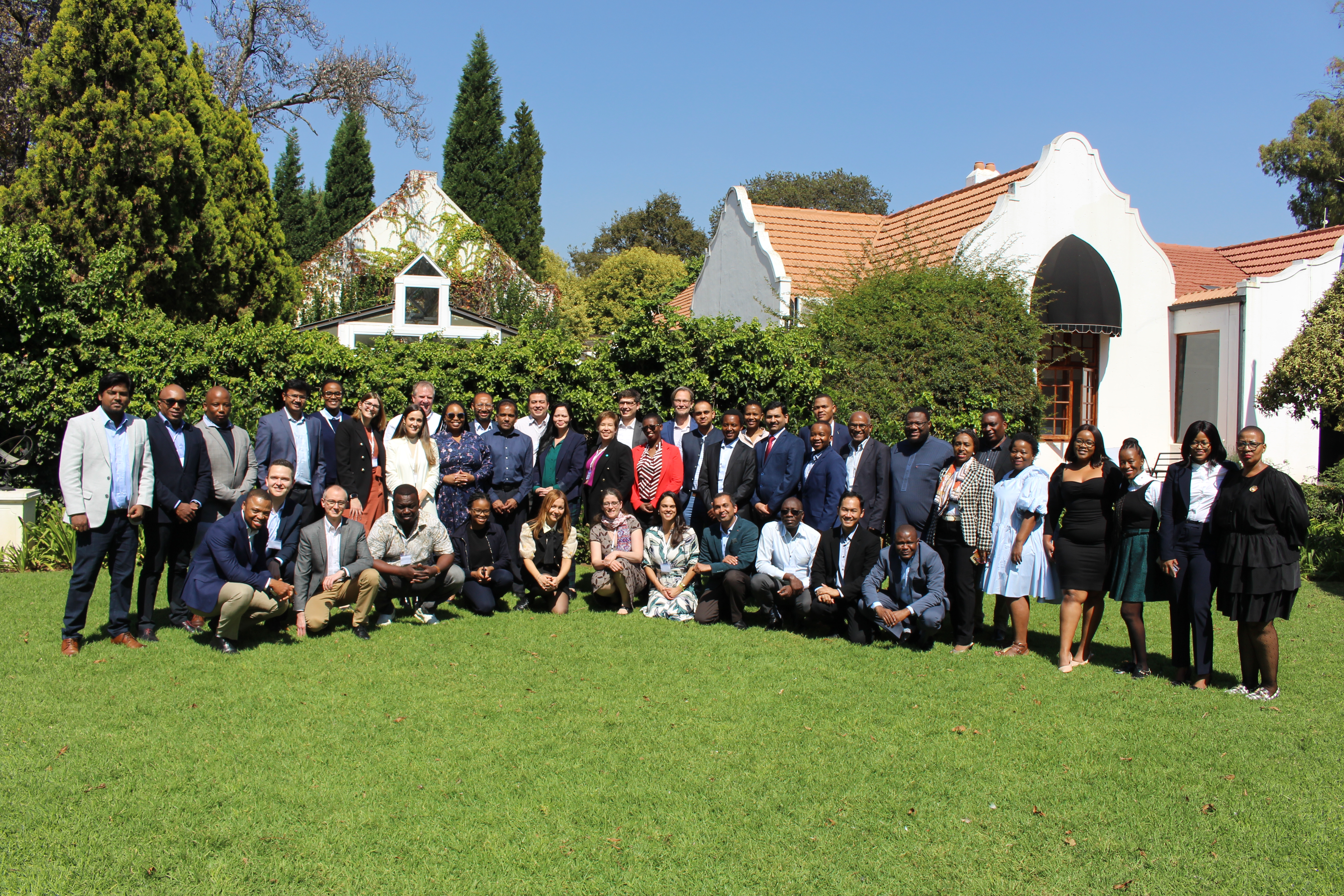
DBSA/IDFC Climate Facility Workshop: How to mainstream Adaptation Finance & Nature based Solutions within IDFC & NDBs business
18 April 2023The consideration of sustainability issues, especially adaptation to climate change, is becoming increasingly important in financial markets and real economy players. At the same time, new opportunities and risks are developing that pose new challenges to the existing business practices of financial institutions.
The IDFC Climate Facility together with DBSA designed a workshop to tackle those issues which gathered more than 50 climate experts from 13 IDFC member institutions. This training week aimed the following objectives:
- To build and strengthen the knowledge of IDFC members on adaptation finance including integrating adaptation across sectors (incl. financial sector) for a structural/systemic change.
- To enable participants to identify core links between sustainable issues and finance.
- To build a common understanding for adaptation finance topics, challenges, barriers and ways to increase adaptation finance.
- To mainstream adaptation finance within NDBs operations, strategic processes and within portfolios.
- To elaborate means for strategic dialogues on adaptation finance solutions.
- To look through the adaptation lens and zoom in to NbS to discuss nature-based opportunities that help reduce national vulnerability to climate change, including how to accelerate finance for such interventions
- To discuss the role IDFC and NDBs may play in cooperation with the main stakeholders (governments, cities and local governments, public and private sectors, including financial intermediaries, international donors, NGOs, etc.) to foster and mainstream adaptation finance and finance for NbS for adaptation.
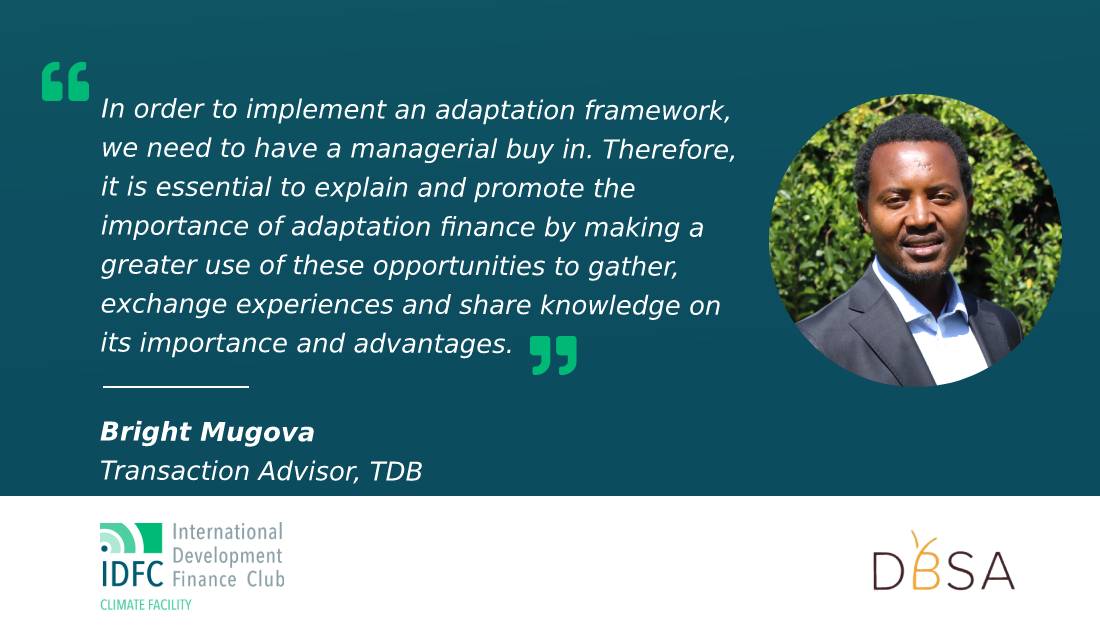
Context
To date, most climate adaptation interventions have been engineered, for example sea walls or irrigation infrastructure, and this has led to a bias in investment towards such engineered approaches. Another, currently underutilized approach, is through nature-based solutions (NbS), and it is widely recognized that NbS are cost-effective solutions that provide environmental, social, and economic benefits and help build climate resilience.
A significant adaptation financing gap has been identified by the international community. In 2019, less than 5% of climate finance went towards dealing with climate impacts, with less than 1% going to coastal protection, infrastructure, and disaster risk management, including NBS (UN Environment, 2019). At both the international and national levels, financial mobilization to invest in NBS for adaptation remain limited and insufficient.
Development banks can provide financing for climate change adaptation and NbS projects, such as early warning systems, coastal protection, and improved water management, which can help protect vulnerable populations from the impacts of climate change. This type of financing helps to ensure that countries are able to develop in a sustainable way and protect their citizens from the worst effects of climate change.
It is important that development banks, and the wider financial sector, include climate adaptation and nature-based solutions (NbS) in their strategic planning, encompassing a risk-layered approach. This requires an understanding of adaptation and adaptation finance, recognizing both how to reduce a finance institutions portfolio exposure and vulnerability to physical and transition climate risks, as well as to identify (new) business opportunities associated with the changing climate.
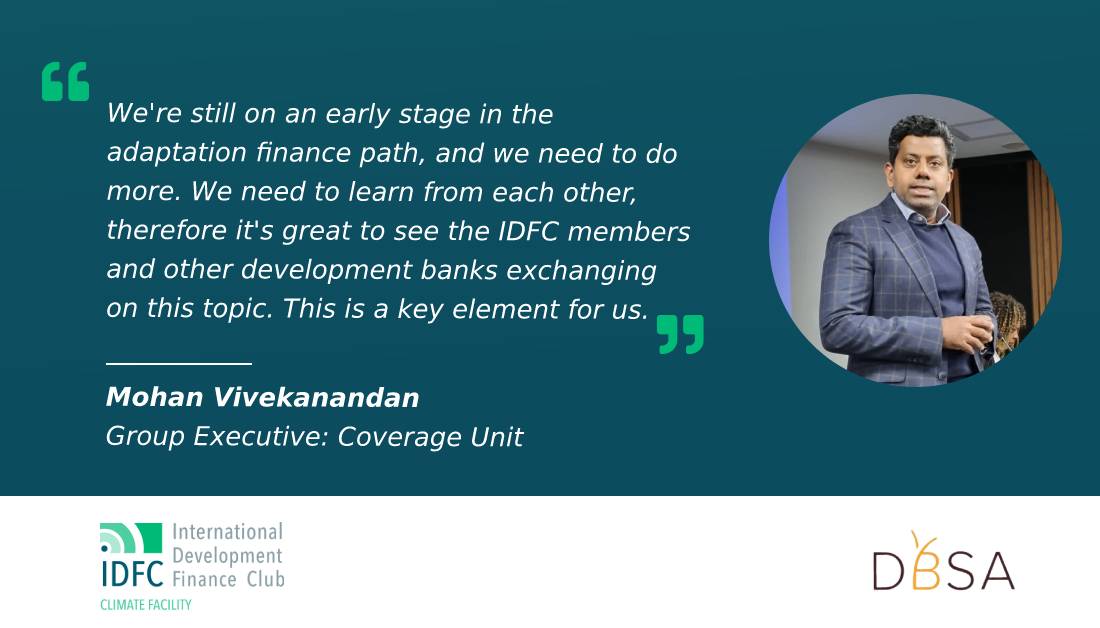
Significant investments are needed to support the global transition to a low-carbon, climate resilient future. National Development Banks (NDBs) have a unique and important role to play in this transition, both complementing and catalysing private finance as well as promoting best practices. As well as the international development of harmonized approaches to adaptation and climate resilience, through principles and jointly agreed methodologies, NDBs need to mainstream adaptation finance within their operations and across their portfolios in order to promote sustainability and drive change within their respective countries. Climate adaptation and NbS need to be proved at scale over time and across different sectors. Pilot projects can be useful to identify emerging “best practices” to embed those successful methodologies and approaches in larger scale operations to ensuring a smooth mainstreaming within the portfolios of the concerned actors.
IDFC, as a club of the biggest Public and National Development Banks, can play a crucial role in supporting the scaling up of adaptation finance and NBS for adaptation within their constituency. IDFC and IDFC members may also engage their clients (financial intermediaries and other direct finance clients) in doing more.
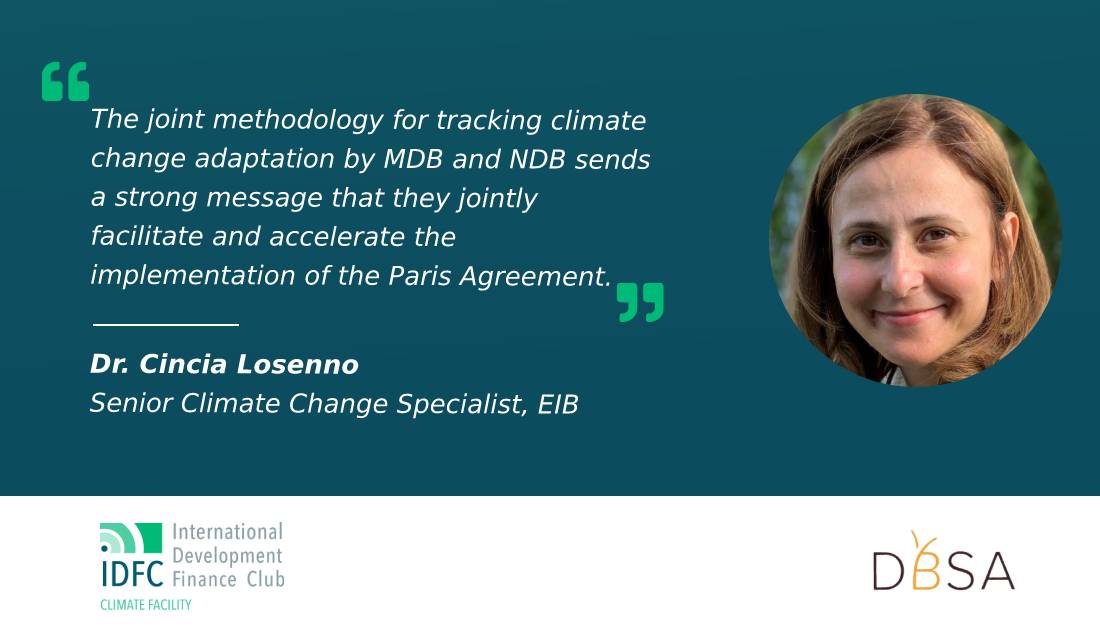
Agenda
Panel 1: How to mainstream Adaptation Finance and Nature based Solutions within IDFC and NDBs business
Convenor: Christine Grüning, Frankfurt School
Keynote on dimension of integrating adaptation (and mitigation) finance into thee four building blocks for integrating adaptation finance: Strategy, governance, process & products, metrics & indicators; Internal and external engagement)
- Speaker 1: Cinzia Losenno, Senior climate change specialist, EIB on Strategy/process/Paris Alignment
- Speaker 2: Damien Delhomme and Christophe Buffet, Adapt’action – AFD programme
- Speaker 3: Olympus Manthata, Head of Climate Finance – DBSA, Environmental governance within DBSA and DBSA Role within the IDFC Group
- Speaker 4: Norma Palma, Climate Change Specialist CABEI, About the project CAMBIO II
Resources:
Panel 1 – Damien Delhomme and Christophe Buffet, Adapt’action – AFD programme
Panel 1 – Norma Palma, Climate Change Specialist CABEI, About the project CAMBIO II
Panel 2: Access to adaptation finance – There might other people joining the panel
Convenor: Christine Grüning, Frankfurt School
- Speaker 1 : Saliha Dobardzic – Team Leader, Programming and Innovation, Adaptation Fund
- Speaker 2: Chris Dickinson – Ecosystems Management Senior Specialist, Green Climate Fund
Resources:
Panel 3: State of the evidence for NbS
Convenor: Jonas Fleer
- Speaker 1: Shaun Martin – Vice President, Climate Change Adaptation and Resilience at WWF Examples of concrete operations – approaches, methodologies, sectors, successes and failures (examples from international and national public agencies, MDBs, IDFC/NDBs, NGOs, private sectors)
- Speaker 2: Vhali Khavhagali, IUCN (NbS investment screening tool under development and South Africa work on NbS)
- Speaker 3: Barney Kgogen – Nature based solutions and climate adaptation approaches from a government agency perspective – some investment ideas for banks
- Speaker 4: Alex Chausson – Senior associate Oxford University/WWF
Resources:
- Panel 3 – Alexandre Chausson – Senior associate, Oxford University/WWF
- Panel 3 – Shaun Martin – Vice President, Climate Change Adaptation and Resilience, WWF
Panel 4: How to involve private sector both in the real sector and financial sector – in adaptation finance and nature-based solutions?
Convenor: Jonas Fleer
- Speaker 1 : Mohammed Sayed DBSA Climate Change Specialist in the Climate and Environmental Finance Unit, DBSA Experience in involving private sector in adaptation finance and nature-based solutions.
- Speaker 2: Reitumetse Molotsoane Head of the Environment and Society at the National Business Initiative (NBI), formerly Director: Mitigation Response Analysis and Director: Climate Change Priority Programmes at the South African National Department Forestry, Fisheries and Environment.
- Speaker 3: Jason Spensley, Senior Climate Change Specialist, GEF
Discover similar articles
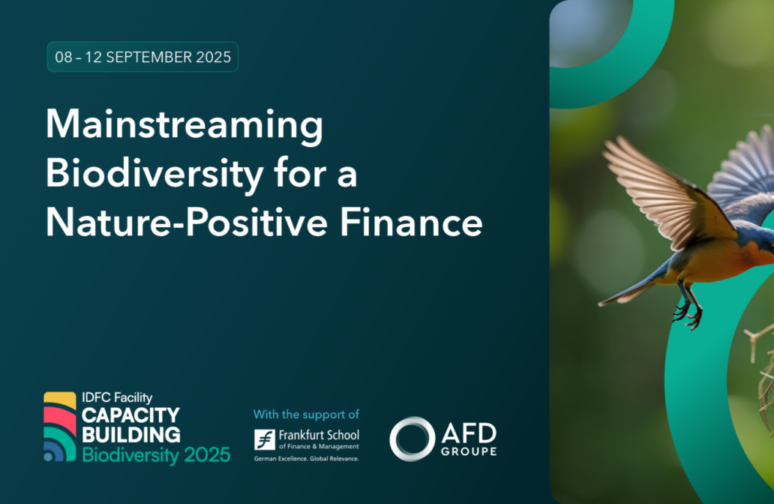
2025 Training Series on Biodiversity Finance
Biodiversity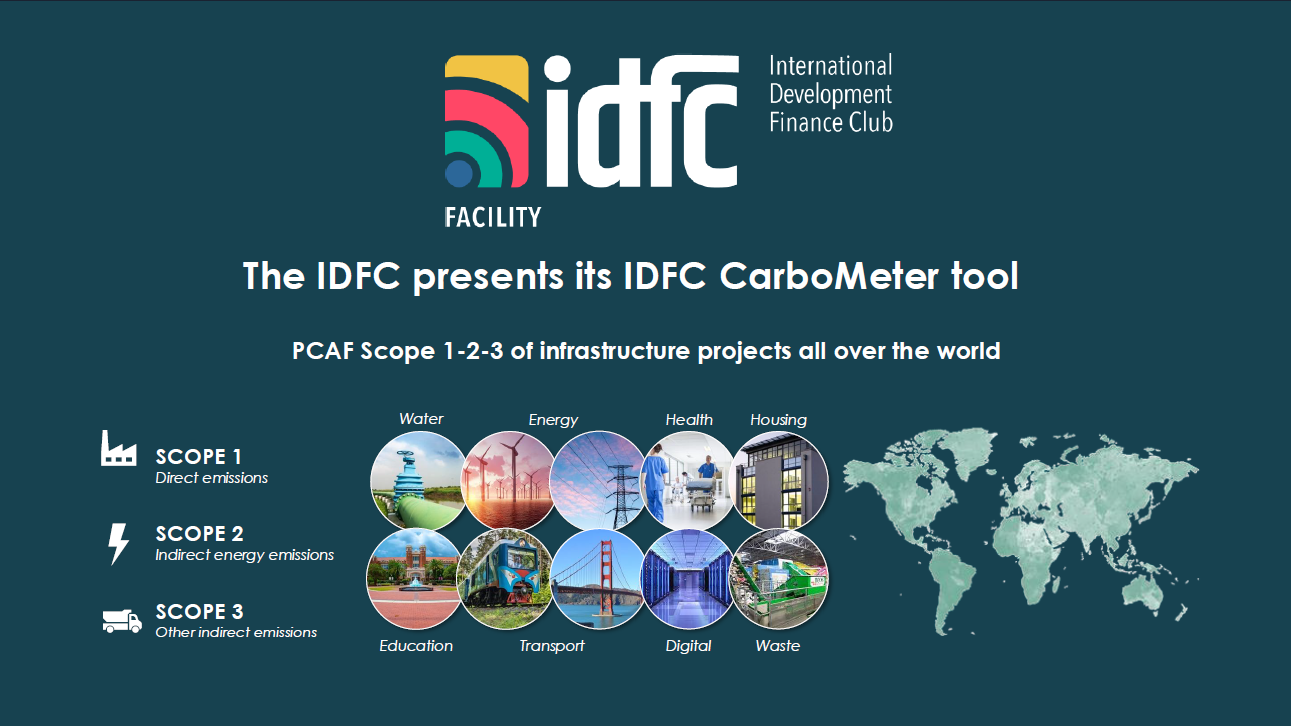
Launch of the IDFC CarboMeter : a new digital solution to strengthen climate accountability across infrastructure investments
Climate